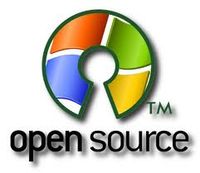
Here is some. A British study, from that country's Centre for Health Informatics and Multiprofessional Education, says open source and open standards can save us billions of dollars in health IT costs.
Here's how:
- It facillitates competition, because you can change vendors or support organizations.
- It levels the playing field between vendors and customers.
- Proprietary systems create lock-in, so customers pay more just as they should be paying less.
- Fears of open source lock-in are mitigated by the right to fork.
- Open source is especially adaptable by health IT because there is already a large, well-trained work force to run systems, which could improve them if given the power open source provides.

Unfortunately open source does not get much respect in America's health care system. Only a relative handful of vendors, like Medsphere, offer open source products, and the government has so much as declared VistA, the VA system Medsphere supports, of being obsolete.
The good news is that the current Administration does appear dedicated to an open process in developing its new information networks, and wants an open source process to replace VistA. This, however, leaves open source vulnerable. It can become a political issue. That has in fact happened, although few people know it. The second half of the Bush Administration saw a virtual jihad against open source and VistA, with contractors brought in to replace them, even though it was obvious that the proprietary AHLTA system didn't work while the VA system did.
And this is where the rubber really meets the road. The open source process doesn't generate the revenue necessary to run political interference, the way proprietary software does. It can be right, ordinary people may be able to understand that, political support may be substantial, but American politics today is generally a combat between money and people with money generally winning.
An example of the lengths closed source will go in this regard can be found in the Netherlands, where an Interior Ministry report indicating the government could save 1-4 billion Euros by moving to open source was suppressed, and only released after a leftist deputy pressed for it. This sort of thing happens all the time, often out of sight, and not just in the public sector.









